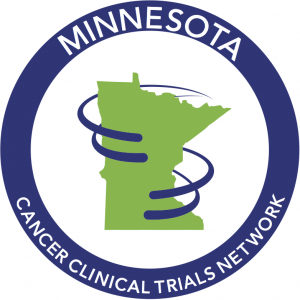Nearly half of all Minnesotans will be diagnosed with a potentially life-threatening cancer during their lifetime; but 56 percent of Minnesotans have fewer options for treatment because they live more than 30 miles from a hospital or clinic that offers access to clinical trials. Thanks to a new state-funded partnership between the University of Minnesota and Minnesota’s major health systems, patients across the state will soon have better access to new cancer treatments and enhanced care delivery.
The Minnesota Cancer Clinical Trials Network (MNCCTN) is a collaboration between the Masonic Cancer Center, Essentia Health Community Oncology Research Program, Mayo Clinic Cancer Center, Fairview Health Services, Sanford Community Oncology Program of the North Central Plains, Metro-Minnesota Community Oncology Research Consortium and The Hormel Institute. In all, there will be 15 new locations across Minnesota that will participate in MNCCTN cancer clinical trials in the first year of the program with additional sites across the state to be added in the subsequent years.
Led by the Masonic Cancer Center, University of Minnesota, the goal of the MNCCTN is to improve cancer outcomes for all Minnesotans through greater access to cancer clinical trials in prevention, treatment, and survivorship. These trials will originate from Minnesota’s two NCI-Designated Comprehensive Cancer Centers, the Masonic Cancer Center and Mayo Clinic Cancer Center, along with the Hormel Institute in Austin.
The Minnesota Cancer Alliance is thrilled to have its members engage in this effort to accomplish Objective 10 of Cancer Plan Minnesota: Increase participation in cancer treatment clinical trials. MNCCTN will increase public awareness about the benefits of participating in clinical trials (Strategy 10.1) and create a statewide centralized clinical trial database that enables health care providers and patients to locate current and accurate information about open trials (Strategy 10.2).
Funded by the Minnesota legislature as a part of the University of Minnesota’s overall Minnesota Discovery Research and InnoVation (MnDRIVE) Strategic Investment Request, the MNCCTN will bring cancer clinical trials to those living in Greater Minnesota and thereby increase access to potentially lifesaving and life-changing therapies and treatments, strengthen healthcare systems, create more equitable access to care, and, hopefully improve cancer outcomes throughout the state.
For more information contact Max Huber, Masonic Cancer Center, University of Minnesota:
612-624-5005 or mjhuber@umn.edu


